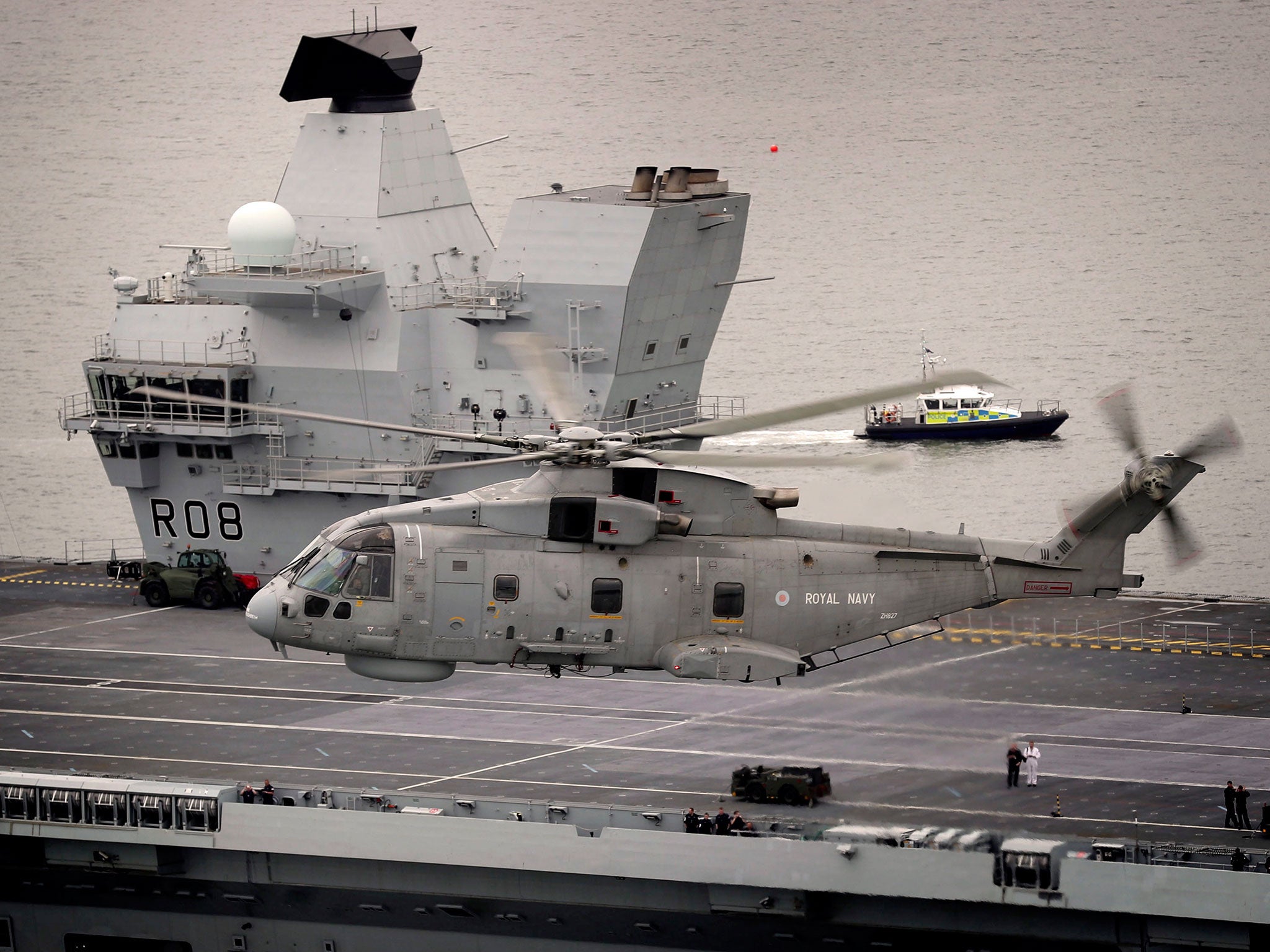UK's national security strategy failing to keep pace with emerging threats from Isis, Brexit and Donald Trump, MPs warn
Britain's security needs 'proper thought and direction' from Government, committee warns

Your support helps us to tell the story
From reproductive rights to climate change to Big Tech, The Independent is on the ground when the story is developing. Whether it's investigating the financials of Elon Musk's pro-Trump PAC or producing our latest documentary, 'The A Word', which shines a light on the American women fighting for reproductive rights, we know how important it is to parse out the facts from the messaging.
At such a critical moment in US history, we need reporters on the ground. Your donation allows us to keep sending journalists to speak to both sides of the story.
The Independent is trusted by Americans across the entire political spectrum. And unlike many other quality news outlets, we choose not to lock Americans out of our reporting and analysis with paywalls. We believe quality journalism should be available to everyone, paid for by those who can afford it.
Your support makes all the difference.Britain’s national security strategy is not adequately responding to the dramatic changes triggered by the rise of Isis, Brexit and Donald Trump’s election, MPs have warned.
The Government launched the National Security Capability Review (NCSR) as a “quick refresh” of capabilities last year but a committee said it does “not do justice” to the volatile security environment.
The Joint Committee on the National Security Strategy (JCNSS) said an “honest conversation” on increasing defence spending was needed if the Government is to match its stated ambitions.
MP Margaret Beckett, the chair of the committee, said a larger national security strategy drawn up in 2015 had rightly been revisited in response to changes.
“Some of these were unpredictable but others, such as the structural hole in the defence budget, have revealed flaws in the Government’s original document,” she added, saying MPs were concerned about the format and scope of the review.
“The nation’s security capabilities are too important to be allowed to evolve without proper thought or direction by ministers.”
The NCSR was split to consider Britain’s defence and security separately, but MPs said the move was a backwards step when changing threats needed a more coordinated response.
In a report completed before the nerve agent attack in Salisbury, the committee called on the Government to improve work on deterrence and its response to threats “that fall short of an act of war”.
One of the biggest changes since 2015 was the election of Mr Trump as US President, the report said, raising concerns about the impact of “America First” policies and the administration’s unpredictable behaviour towards international politics and alliances.
The vote for Brexit has also pushed the UK into a “different context”, forcing it to negotiate new agreements to continue cooperation with the EU on defence and security.
The report also cited the rise of Isis and attacks in the UK, the refugee crisis and tensions over North Korea, Iran and the South China Sea.
MPs noted Theresa May’s assessment that Russian aggression was increasing and threatening the international order “on which we all depend”.
In evidence sessions, the JCNSS said the rule-based international order was being eroded, making it harder to build a global consensus amid a resurgence of state-based threats and competition.
MPs were also warned of the impact of technology and cyber attacks, alongside the continuing online radicalisation of potential terrorists.
The changes have sparked repeated calls for the Government to raise its spending on defence above the Nato benchmark of 2 per cent of GDP.
It has guaranteed a 0.5 per cent real-terms increase in the annual defence budget each year until it reaches £39.6bn in 2020-21, but former military officers said the situation was now in a “parlous state”.
According to a January 2018 report by the National Audit Office, there is a gap of between £4.9bn and £20.8bn between commitments made in the Ministry of Defence Equipment Plan and planned funding over the next decade.
The JCNSS said the gulf was caused by the department committing to buy more than it could afford, combined with “unrealistic assumptions about efficiency savings”.
The Defence Committee has repeatedly called for a return to the 3 per cent level that had been maintained until the mid-1990s.
The report documented additional concerns that the investments made by the British military, such as the two delayed new aircraft carriers, would fare badly against peers like Russia and China and were driven by an archaic approach to defence rather than innovative responses to current threats like Isis and other insurgent groups.
A government spokesperson said the NSCR was a significant piece of work that properly assessed the threats and opportunities facing the UK.
“It identifies how we can use our considerable national security capabilities more effectively and efficiently to achieve our national security objectives and support implementation of the 2015 SDSR,” he added.
“We are confident the NSCR public report will address many of the points the JCNSS has raised.”
Join our commenting forum
Join thought-provoking conversations, follow other Independent readers and see their replies
Comments